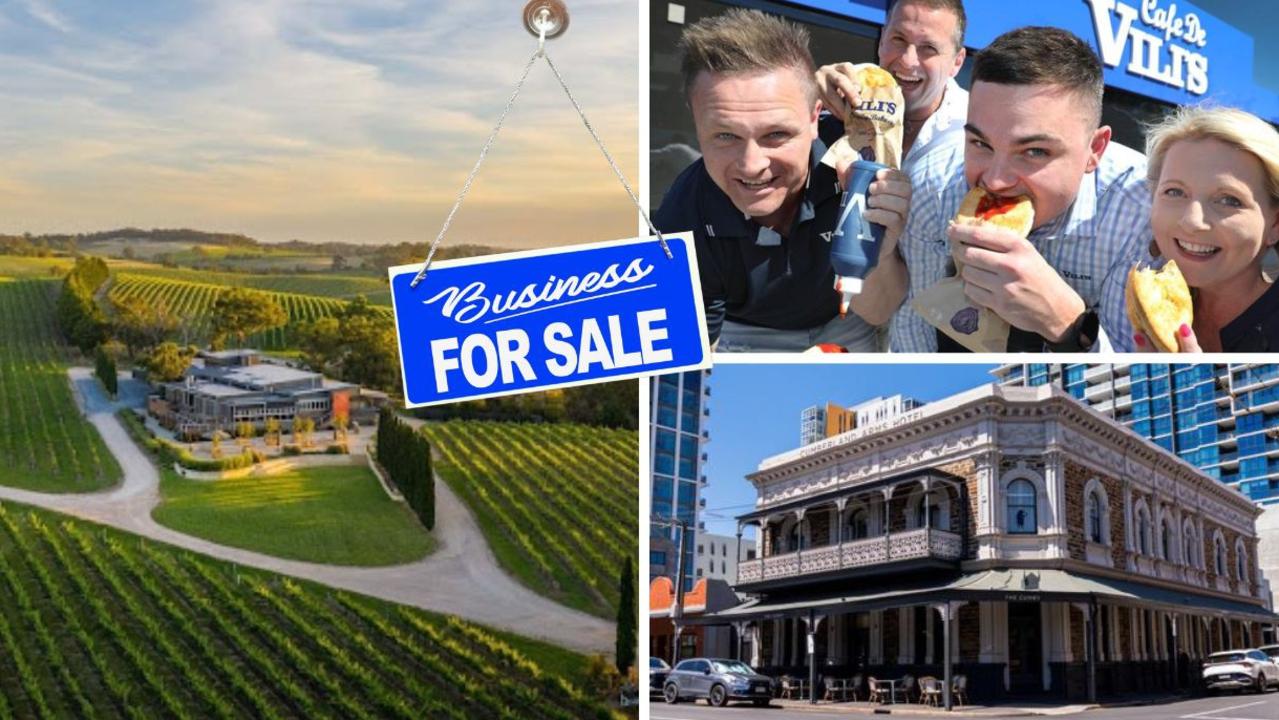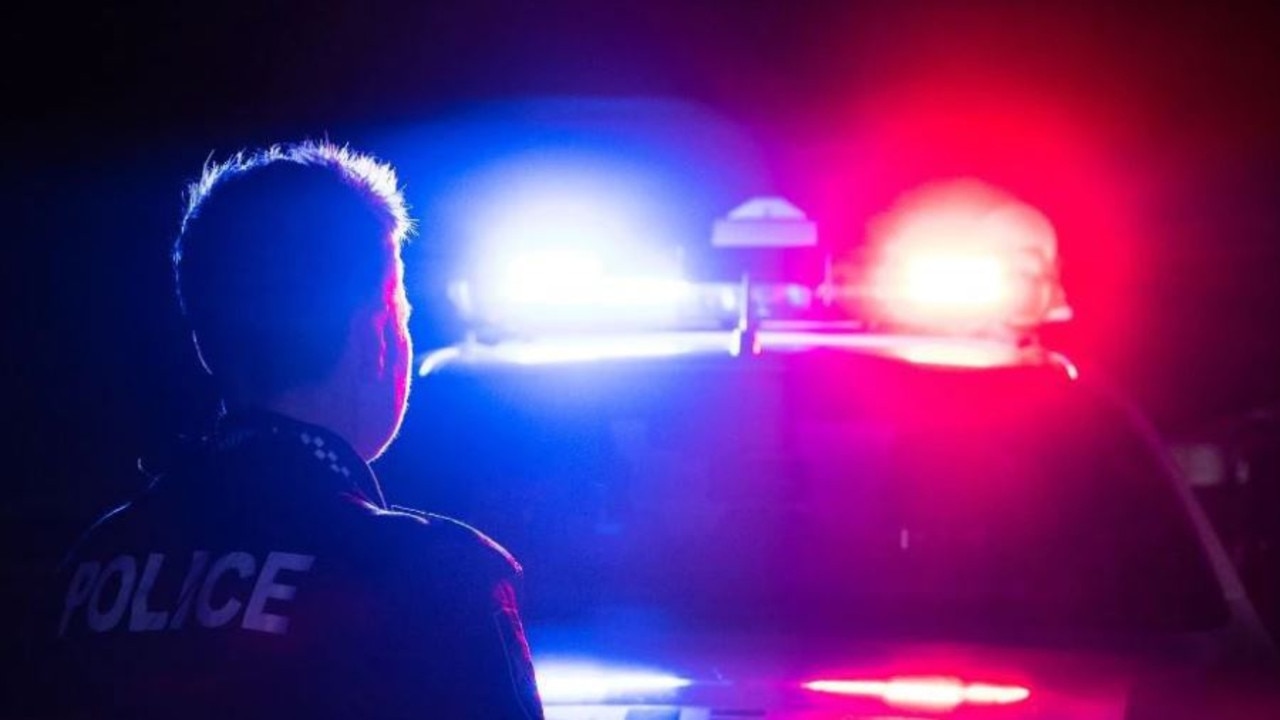Adelaide CFS volunteer Richard Davis explains how he was paralysed in a Flinders Rangers motorcycle crash
As a CFS volunteer, Richard Davis says he had been the one rushing to help people in serious trounle until a common mistake left him in mortal danger himself.
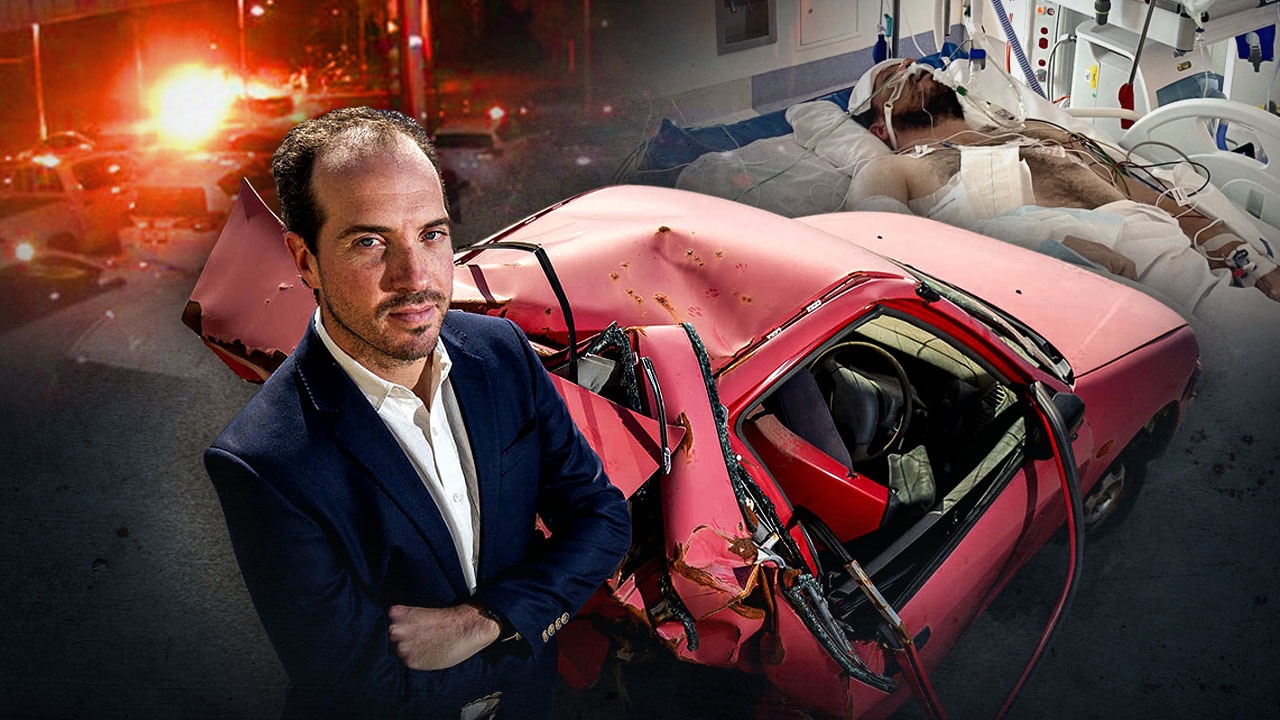
SA News
Don't miss out on the headlines from SA News. Followed categories will be added to My News.
As an Aldinga Country Fire Service volunteer, Richard Davis had witnessed the horror of fatal and serious road crashes on treacherous Fleurieu Peninsula roads since he was 18.
But a split-second decision on a country road saw Mr Davis tragically become a victim in a lifechanging motorbike crash that put him in a wheelchair – and could have cost the then-30-year-old his life.
“Aldinga is a specialist road crash rescue brigade. I have, unfortunately, seen multiple serious and fatal car and motorbike accidents over the years ... and been the one cutting people out of crashed cars,” said Mr Davis, now 40, whose spine was fractured in the 2014 crash in the Flinders Ranges.
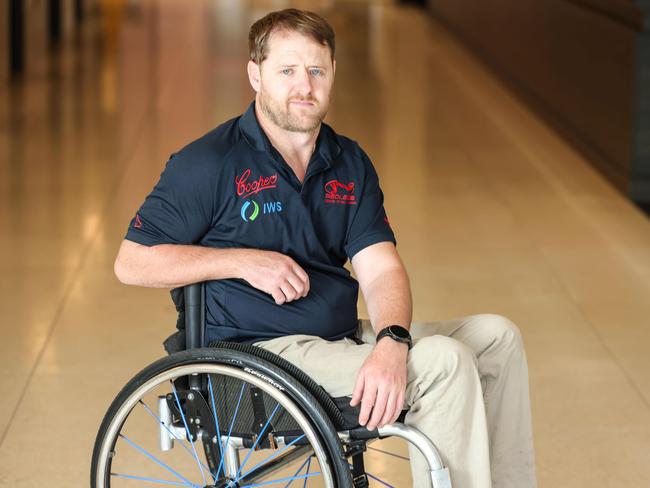
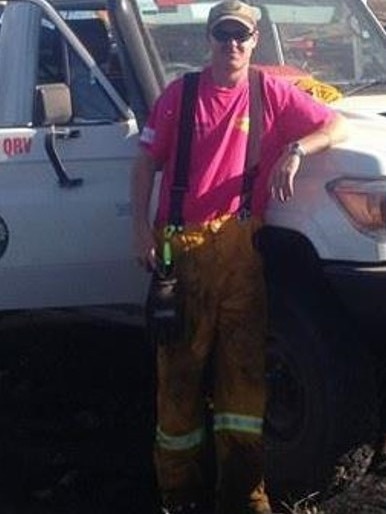
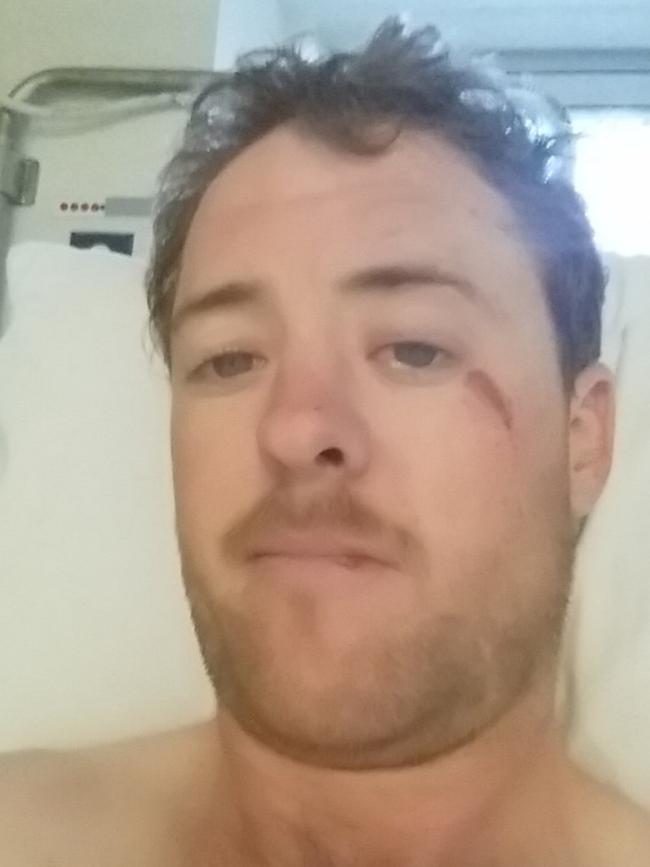
“It probably made me think a bit more about how I was driving, how I acted on the road. But I fell into the trap of riding outside of my abilities.”
Mr Davis, who was living and working as a boiler-maker in the Flinders Ranges town of Wilmington, had been riding motorbikes for about six months when he took a ride with a friend to Alligator Gorge lookout.
Heading back in the dark, Mr Davis said he was trying to keep up with his friend – a much more experienced rider – when he came to a big, sweeping bend.
“I just remember coming up to the corner and in my head going ‘shit, I’m going too fast’,” he said.
“I cut the corner and came off the edge. My back wheel hit the base of a small tree. I got thrown a couple of metres off the side of the road.”
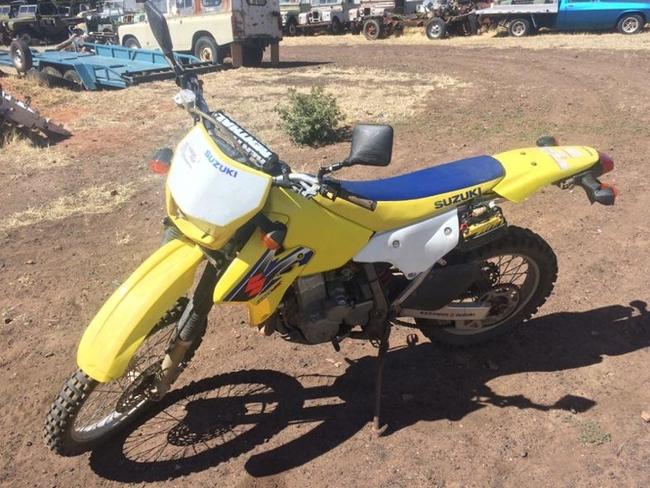
Mr Davis said he had no memory of the accident. He regained consciousness on the side of the road and realised he could not move his legs.
“I just remember my legs being numb and I was trying to sit up and couldn’t sit up,” he said. “It was that real initial shock that I’d done something serious.”
Mr Davis and his friend, who had raced back to his side, rang another mate who was an ambulance officer in Wilmington. He arrived about 10 minutes later but it was another 20-minute wait for the ambulance, which took Mr Davis to Port Augusta, where he spent the night in hospital before being flown by Royal Flying Doctor Service to the Royal Adelaide Hospital the next morning.
“I had no feeling from my belly button down,” said Mr Davis, who had fractured his T6 veterbra. “It was a real big shock for the first few days.”
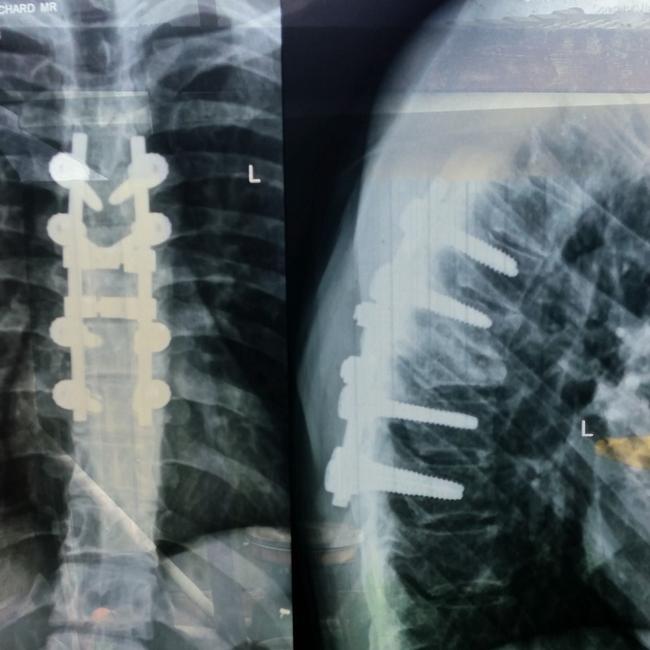
Mr Davis spent a week at the RAH and then three months at Hampstead Rehabilitation Centre adapting to life in a wheelchair.
He set his sights on a new future and studied civil engineering at the University of SA, finding a job at Aurecon Engineering in Grenfell St.
Outside of work, he is still a CFS volunteer, working in its incident management support at Mount Barker.
A keen sportsman, he played wheelchair basketball for Adelaide Thunder and competed overseas in wheelchair badminton.
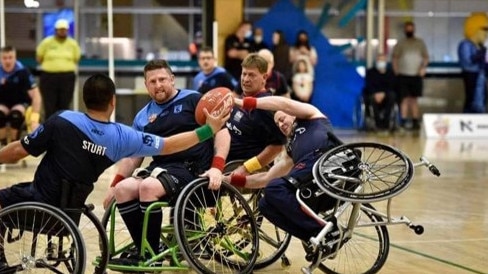
Now, he’s aiming for the Los Angeles Paralympics in his latest sport, archery, and plays for Norwood in the SANFL’s wheelchair football competition.
And Mr Davis, who shares his story with young people through the Prevent Alcohol and Risk-Related Trauma in Youth (PARTY) program, has thrown his support behind The Advertiser’s Arrive Alive campaign.
He urged road users to avoid making “stupid” mistakes.
“(For me), it was just taking that risk that I normally wouldn’t have taken. I could have taken slightly risky situations hundreds of times,” said Mr Davis, who lives in Klemzig with his partner, Pip O’Loan.
“I’m lucky I ended up a paraplegic and not a worse situation. You might do it 100 times but it might be that 101st time that you make a mistake. If I can change one person’s perspective or stop one person from ending up in a wheelchair ... or even worse, in a fatal accident, I feel like I’ve done my bit to try and help limit the impact of the road trauma.”




